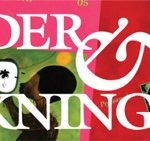 Women, Gender & Research / Kvinder, Køn & Forskning, 2020/1 – Special Issue (Web) Editors: Lisa Käll, Jonathan Mitchell, Tobias Skiveren and Morten H. Bülow
Women, Gender & Research / Kvinder, Køn & Forskning, 2020/1 – Special Issue (Web) Editors: Lisa Käll, Jonathan Mitchell, Tobias Skiveren and Morten H. Bülow
Proposals by: February 25, 2019
The meaning and signifcance of bodily differences, norms of embodiment, and imaginaries about (‚people‘) personhood are central problematics within feminist studies, disability studies and feminist bioethics alike. These problematics relate not only to differential experiences and contexts for living particular lives, but also to associated social and institutional power-relations, hierarchies and policies, as well as to the material and technological circumstances that in different ways shape – limit and make possible – different ways of living.
In this Special Issue the editors invite papers that critically examine diverse phenomena of disability, whether physical or mental, congenital, acquired, or age-related, from feminist perspectives.
In particular, contributors are invited to think critically and creatively about disability in relation to the objects, notions or metaphors of ‚prostheses‘. Prostheses can be thought of in relation to a diverse multitude of phenomena – from wheelchairs to hormone replacement therapy – that in different ways shape and reshape not just functionality, but the very fabric of human lives, particularly in the context of disability. In addition, the prosthetic metaphor is operationalized in a wide range of contexts, evoking a blending of human and technology to triumphantly overcome the ’natural‘ limitations of the ‚ordinary‘ human body.
The development of increasingly sophisticated technologies that can aid individuals with disability (e.g. high-tech prostheses, brain implants, exo-skeletons, intense pharmaceutical interventions, etc) have changed drastically the modes through which disability is represented and understood in mainstream and alternative cultures. In consequence, the use and/or incorporation of prostheses cannot be read as simply utilitarian and in disability (and similarly in organ transplantation) is often associated with a dysphoria that indicates the difficulties of identity reformation (Sharp 2006; Sobchack 2010; Shildrick 2015).
Despite a biomedical reading of prostheses as always therapeutic and often literally life-saving, recipients may tell a different story of how the incorporation of non-self elements into the body can cause disruption in one’s phenomenological experience and therefore to the sense of self – an issue not just about enduring physical discomfort but mental distress that far exceeds the positivist claims made for biotechnological interventions. The patterns of inclusion and exclusion, and categories of normal and abnormal, and natural and artificial, that generally circulate in western societies, contribute further to the ambiguities and contradictions that problematise each act of incorporation.
The Special Issue welcomes contributions that unsettle the familiar certainties of modernist thought by exposing all the gaps, fissures and aporia between the ideal and the actual that render some lives – often those of people with disabilities – unsustainable. Interdisciplinary approaches and approaches that bring an important gendered dimension to these considerations, as well as analyses of the diverse aspects of social injustice and local and global inequalities as related to health and ability, are particularly encouraged.
Topics may include, but are not limited to:
– Gendered representations of disability and prostheses
– Disability and the posthuman
– Gender affirming/transforming prostheses
– Neural prostheses
– Technologies and materialities of disability
– Queering concepts and practices of prostheses and disability
– Norms of embodiment, personhood and ‚healthy‘ bodies
– Disability, crip and feminist theory/methodology
– Disability/prostheses and feminist bioethics
– Disability policies and inequality
Editors:
Lisa Käll, Associate Professor, Department of Ethnology, History of Religions and Gender Studies, Stockholm university
Jonathan Mitchell, Ph.D. Student, School of Philosophy, University College Dublin
Tobias Skiveren, Ph.D. Student, School of Communication and Culture, Aarhus University
Morten H. Bülow, Ph.D., Coordination for Gender Research, University of Copenhagen
Deadline for abstracts (max 300-word + up to 100 word author bio): February 25, 2019
Deadline for articles: August 25, 2019
All contributions must be in English and should be submitted to: redsek@soc.ku.dk
Guidelines for contributors: http://koensforskning.soc.ku.dk/english/kkof/guidelines/
For more information about the journal Women, Gender & Research / Kvinder, Køn & Forskning, see: http://koensforskning.soc.ku.dk/kkf or http://koensforskning.soc.ku.dk/english/kkof/
Source: genus-request@listserv.gu.se
